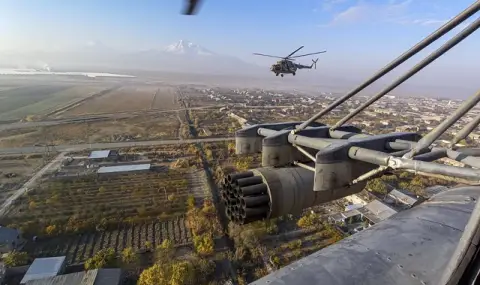Ukrainian forces struck a Russian coast guard base in occupied Crimea on the night of the 17 vs. July 18.
This is according to the Institute for the Study of War (ISW) daily analysis.
On July 18, the Ukrainian publication Suspilne reported that Ukrainian law enforcement sources said that on the night of July 17-18, the Security Service of Ukraine (SBU) carried out a naval and air strike with a drone during a Russian military exercise at a Russian coast guard base near occupied Lake Donuzlav in Crimea and damaged and disabled a headquarters with a checkpoint, an ammunition and equipment warehouse, an electrical substation, technical facilities and Russian firing positions.
Recently, Russian forces have advanced slightly along the Kupyansk-Svatovo-Kremina line and near the cities of Kharkiv, Toretsk, Avdeevka and Khuliypole.
Russian officials continue to make efforts to expand the training capacity of the Russian armed forces and to address the problems with the formation of the force.
European countries continue to demonstrate their commitment to Ukraine and unity in the face of Russian aggression.
On July 17, Rosgvardia made an unprecedented proposal to grant the leadership of the Russian Central Bank the right to carry automatic weapons and pistols.
Kremlin officials continue to expand the geographic scope of Russia's proposed alternative "Eurasian security architecture".
At a press conference at the United Nations on July 17, Russian Foreign Minister Sergey Lavrov stated that Russia and the People's Republic of China (PRC) are intervening within the framework of the Shanghai Cooperation Organization (SCO), the Association of Southeast Asian Nations (ASEAN) and the Council for cooperation in the Persian Gulf (an economic union comprising Bahrain, Kuwait, Oman, Qatar, Saudi Arabia and the United Arab Emirates) to create a Eurasian security architecture.
On June 14, Russian President Vladimir Putin proposed the creation of an alternative Eurasian security system with the support of Chinese President Xi Jinping. Recently, Putin explicitly emphasized that Russia is ready to discuss Eurasian security issues with the SCO and that it wants to develop a dialogue with ASEAN.
Putin has identified Vietnam - a country not usually included in political concepts of Eurasia - as part of his proposed Eurasian security system.
The Gulf Cooperation Council consists of Bahrain, Kuwait, Oman, Qatar, Saudi Arabia and the United Arab Emirates; and Russia appears to be viewing the Persian Gulf states as potential members of its envisioned "Eurasian" system.
The US continues to make efforts to build a partnership with Armenia, prompting criticism from Kremlin officials.
